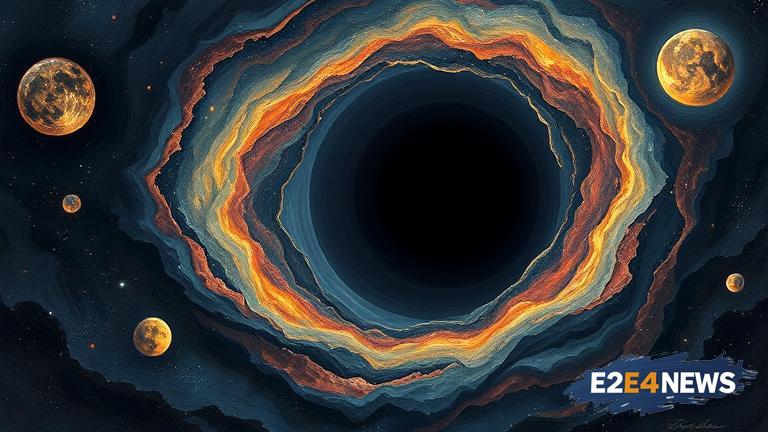Black holes have long been a subject of fascination and intrigue, with scientists and theorists attempting to unravel the mysteries surrounding these cosmic phenomena. A black hole is essentially a region in space where the gravitational pull is so strong that nothing, including light, can escape. The formation of a black hole occurs when a massive star collapses in on itself, causing a massive amount of matter to be compressed into an infinitesimally small space. This compression creates an intense gravitational field, which warps the fabric of spacetime around the black hole. The point of no return, called the event horizon, marks the boundary beyond which anything that enters cannot escape. The chronicle of black hole research has been marked by numerous breakthroughs and discoveries, with scientists using advanced telescopes and detection methods to study these enigmatic objects. One of the most significant discoveries in recent years is the detection of gravitational waves, which are ripples in spacetime produced by the collision of two black holes. This discovery has opened up new avenues for research, allowing scientists to study black holes in ways previously thought impossible. The study of black holes has also led to a greater understanding of the universe as a whole, with implications for our understanding of spacetime, gravity, and the behavior of matter in extreme environments. Despite the significant progress made in black hole research, there is still much to be learned about these mysterious objects. Scientists continue to explore the properties of black holes, including their spin, charge, and mass, in an effort to better understand their behavior and role in the universe. The chronicle of black hole research is a testament to human curiosity and the drive to uncover the secrets of the universe. As scientists continue to push the boundaries of knowledge, we can expect to uncover even more fascinating secrets about black holes and the cosmos. The latest research has also shed light on the role of black holes in the formation and evolution of galaxies, with supermassive black holes found to reside at the centers of many galaxies. The study of black holes has also led to a greater understanding of the interplay between matter and energy, with implications for our understanding of the fundamental laws of physics. Furthermore, the detection of black holes has also raised questions about the potential for life in the universe, with some scientists speculating about the possibility of life existing in the vicinity of black holes. While the search for life beyond Earth continues, the study of black holes remains an exciting and rapidly evolving field of research. The chronicle of black hole research is a story of human ingenuity and the boundless curiosity that drives us to explore the unknown. As we continue to explore the mysteries of black holes, we may uncover even more surprising secrets about the universe and our place within it. The study of black holes is a reminder that there is still so much to be discovered and explored in the universe, and that the secrets of the cosmos are waiting to be unlocked. With ongoing research and advancements in technology, we can expect to learn even more about black holes and their role in the universe. The chronicle of black hole research is a fascinating story that continues to unfold, with new discoveries and breakthroughs being made regularly. As we delve deeper into the mysteries of black holes, we may uncover even more surprising secrets about the universe and our place within it. The study of black holes is a testament to the power of human curiosity and the drive to explore the unknown, and it is an exciting and rapidly evolving field of research that continues to captivate scientists and theorists alike.





